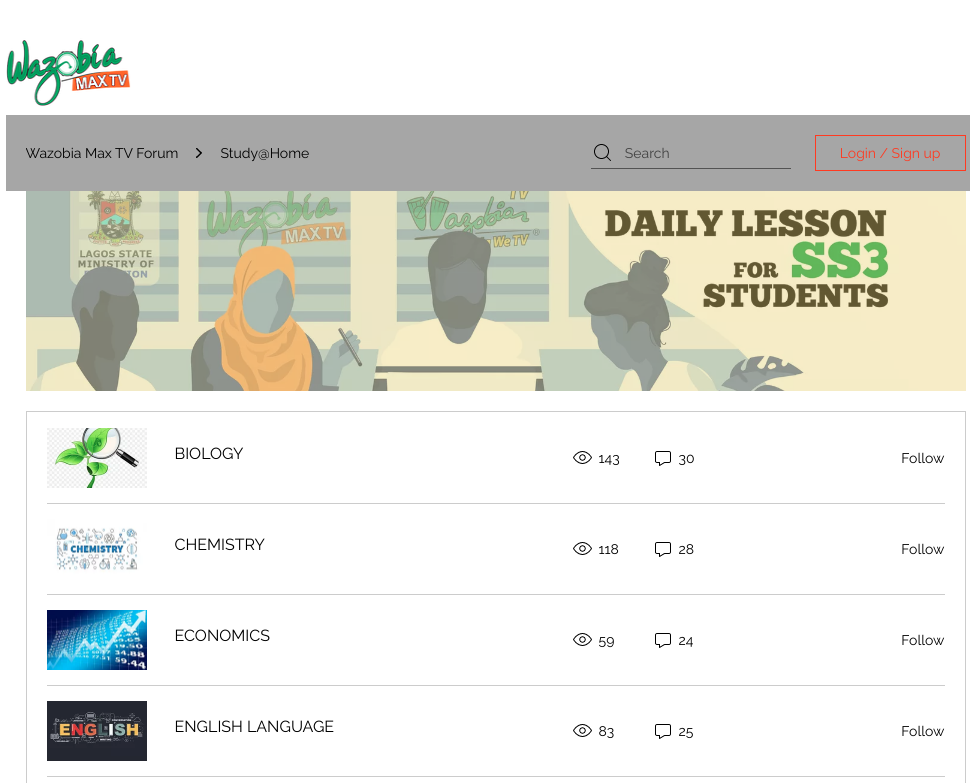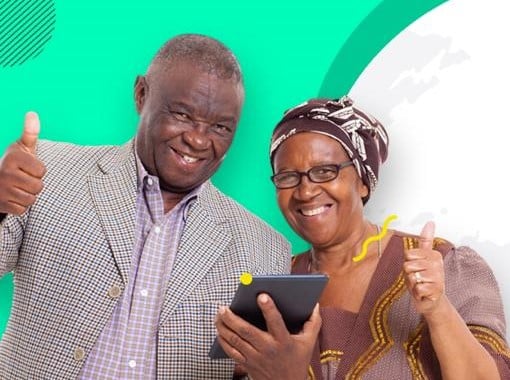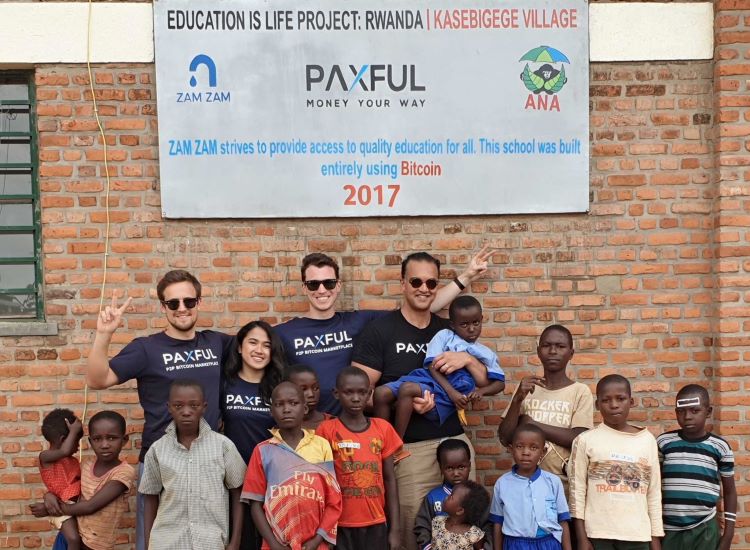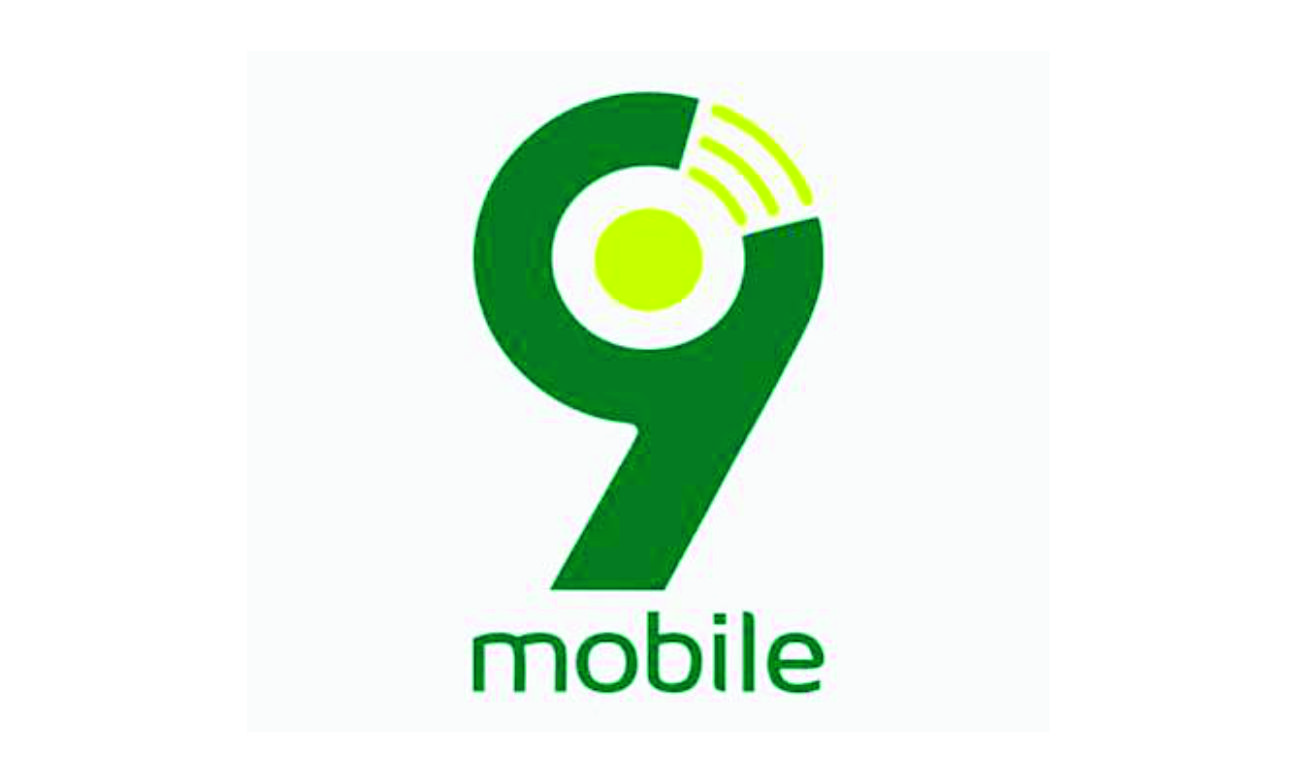The Coronavirus pandemic came with socio-economic challenges the world has been trying to grapple with. It also presented an opportunity to explore new ways of doing the things we have been used to doing – what has come to be accepted as “the new normal”. The need to adopt a new way of life stems from the fact that the pandemic is not going away any time soon.
One of the fallouts of the pandemic in Nigeria was the shutdown of schools as part of measures to curb its spread among students. However, the closure of schools also presented opportunity for alternative ways of learning for students who would otherwise be idling away at home, waiting for whenever schools would resume. One of those alternatives is online learning. And with a shaky start to eventual resumption of schools experimented with exit classes examinations of the West African Examinations Council and the National Examination Council, it became uncertain when safety of students could be guaranteed for full resumption.
Wazobia Media, unarguably Nigeria’s fastest rising media organization, recognized opportunity in the pandemic where others saw challenges. It saw in the school closure opportunity to proffer solutions to a national problem by offering platforms for learning for secondary school students – for those that attended preparatory classes for the examinations and generally for others as well, for the duration of the lockdown. The aim is to reduce the negative impact of the lockdown on students who have never had to stay at home longer than the normal holiday periods – negative impact in terms of disruption of curricular activities.
Every weekday, since Monday, March 30, 2020, the media group has been dedicating programmes on three of its outfits Wazobia 95.1 FM, from 12 noon to 2 pm, Wazobia Max Television and Wazobia Television to providing remote learning for students throughout the country. Lessons are provided in Mathematics, English Language, Chemistry, Physics, Financial Accounting, Biology, Economics, Yoruba and Literature in English.
The service, a product of a partnership between Wazobia Media and the Lagos State Ministry of Education, is remarkable for the fact that it is at no cost to students benefitting from it. It is targeted mainly at students in public schools (state and federal government owned), who may not have the financial wherewithal to receive online lessons to which students in private schools have access, because of the cost implications.
Experts say by putting its media channels to public use at a time the world is facing an existential crisis, Wazobia Media has demonstrated leadership and ability to tackle what would otherwise have been an intractable problem – a possible disruption, if not total suspension of academic activities during a pandemic which duration nobody could predict. “The educational broadcast by the Wazobia Media Brand is one driven by the commitment of the organization in adding value through investments that are incalculable in educating students and members of the society”, said Tatiana Moussalli Nouri, co-founder and chief executive officer of Wazobia Media.
With the programme, the media group is promoting inclusive learning for every student, irrespective of background. It has demonstrated ingenuity at a time of crisis in adding value to the society and bringing great relief to families. It would have been difficult, if not impossible, for a great number of students to receive learning during the period of the lockdown, if not for the Wazobia Media intervention.
Apart from the fact that not many students can afford laptops for online learning, they are some parts of the country that do not boast of many hours of electricity supply daily, making reliance on generating sets a necessity – all of which many families cannot afford. The Wazobia remote learning programme provides a radio alternative where power supply is not reliable, since students can participate in the programme with small, battery-powered radio sets. There is also the segment on the social media platform of Whatsapp on phone, which allows for interaction through calls and messaging among students and teachers.
Folashade Adefisayo, commissioner for education, commended the organization for aligning with the state government in providing a robust and lively learning platform for students during a global pandemic.
She said that “when it was clear that we had to lockdown schools, discussions commenced with various stakeholders within the educational sector in the state. The private schools talked about setting up online learning system for their students, however with an understanding of our demographic in the public sector and the challenge faced by most students in having access to the internet, data and devices for online learning, we began to explore alternative channels to help the students learn seamlessly.”
Adefisayo said that Wazobia Media reached out to the government and volunteered to partner in producing and broadcasting daily lessons for students on its radio and television platforms at no cost. A decision which has helped cushion the effects of the pandemic on the government and parents.
“Wazobia is probably the most popular channel, both on radio and television, among young people, because many of the numerous programmes those stations carry appeal mostly to them”, says Jude Anakwe, a teacher in a government secondary school in the Alimosho area of Lagos. “I see it as an appropriate channel for learning for students, because of the large segment they cover. I think the programme has given more students access to learning during the lockdown, especially since it is targeted at students in public schools, who are more in number than those in private schools”.
The teacher, whose two children are in public secondary schools, said the programme has afforded them the opportunity to continue their learning while at home, like their counterparts in private schools. “When you think of how much it would cost me to acquire two laptops for them for online learning, then you understand the relief the programme has given me, using television and radio which we have at home”. He said although the programme was not the same as physical presence in classrooms because of limited time, four hours of learning every school day was better than being idle all day.
Media watchers and analysts say with the learning programme offered by its platforms, Wazobia Media is living true to its motto of being a truly indigenous media platform that exists for Nigerians and is committed to contributing to finding solutions to the challenges facing the country. They believe there couldn’t be a more auspicious time to demonstrate that commitment than now, when all hands are needed on deck to see the country through a global crisis that has paralyzed life in some parts of the world. The media organization is also demonstrating its position as a responsible corporate citizen whose motive for existence goes beyond business.
The Lagos State Government has announced a tentative date of September 21, 2020, for resumption of primary and secondary schools in the state, after resumption of tertiary institutions on September 14. It is not clear yet if Wazobia Media would be considering amending the programme to accommodate learning after schools resumption.
Add a comment







